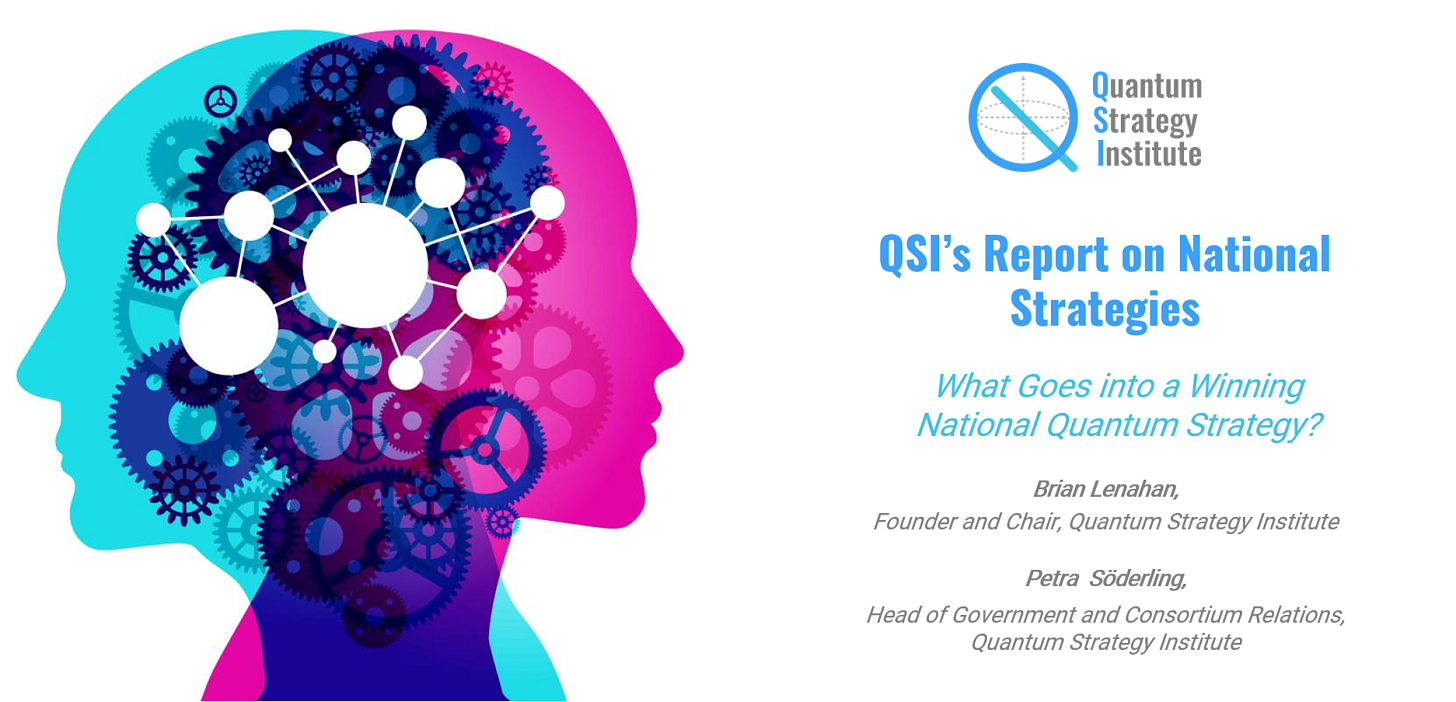My colleague Brian Lenahan of the Quantum Strategy Institute starting pulling together materials for an article “What goes into a Winning National Quantum Strategy” late last year. Tapping into his networks and resources at the Quantum Insider and Qureca, Brian and I wrote, this great study. Even though this particular paper is on quantum strategies, there are many takeaways for any national emerging technology strategy.
Based on theories, such elements as comprehensive Research and Development Ecosystem that combines investments in core research, multidisciplinary research and R&D teams, and public-private-partnerships, skilled workforce, both home-grown as well as immigration based, infrastructure, standardization and interoperability efforts, promoting industry and innovation via funding, trade agreements, tech transfer, market incentives, are all important.
Additionally, increasingly urgent and important in the current turbulent geopolitical climate, issues like international cooperation in supply chains, export controls, standards, IPR protection, and addressing ethical and security concerns.
What does Winning look like?
Any country or region creates their own success stories. Some put more weight on economic success, some are looking for leadership in science, some prioritize national security.
In our study we looked at top countries and their performance based on the following metrics:
Government Funding Commitment
Number of Companies
Number of Involved Universities
Investors
Enterprise Users
Patents
Research papers
Without going too deep into the study, those countries who had published a national quantum agenda or a national quantum strategy, typically have more government funding, more research that results in published papers and patents. But here, as well as in my previous research I have found that the number of (startup) companies and investors depend on a larger government involvement.
Whether it is deeptech or emerging technology, applied science, scaleup industries, governments help industry and the economy by enacting smart trade policy, smart tax policy, smart immigration policy, smart defence policy, smart wage and unionization policy, smart infrastructure policy, smart housing policy, and smart education policy.
Why is this important now?
We are in the middle of a global discussion on values, principles, and strategies. This discussion takes place in an environment where misinformation and bad intent roam rampant. Some try to gain popularity by offering simple answers to complex solutions, without referencing history or precedent.
What you can do
Be active. Take part in public discussion about the direction of science and research, and share information about best practices and success stories. If you’d like for the Petra Soderling & Co. team to help, we are one email away at petra@petrasoderling.com
Other QSI studies
Check out these related strategies from the Quantum Strategy Institute by me, Brian, and Danika Hannon.
How Europe prepares itself against quantum threats
How Asian countries are addressing Post Quantum Cryptography
The US Economy and Quantum Computing
Upcoming events
I will be in Luxembourg during March 19-21, 2025 in European Union meetings.
I will be in the Quantum World Congress, Washington DC in September 16-18, 2025.
I will be on Deep Pockets podcast every second week.
From the Archives
What these countries have done right?
Chapter from my audiobook, introducing the section where I discuss the national strategies of Brazil in Agriculture, Canada in Quantum, Finland in AI, Italy in Space tech, and South Korea in Displays.
Government and Innovation: The Economic Developer's Guide to Our Future
My book from 2023 discussing how local, regional, and national governments can use existing instruments to steer their economies to include more innovative industries that provide higher economic value-add.
Government and Innovation: The Economic Developer's Guide to Our Future
Audiobook narrated by author available at Audible






